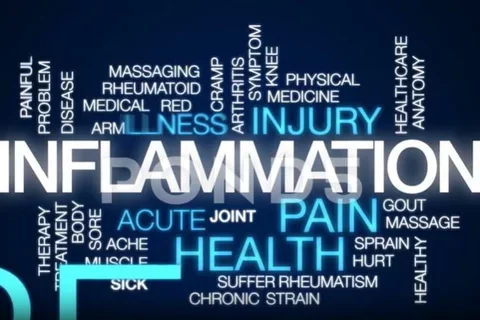Inflammation more likely to trigger depressed mood in women than men, UCLA research shows

Inflammation is more likely to trigger a depressed mood and feelings of social disconnection in women than in men, according to a UCLA study, a finding that may help explain why women have twice the risk of depression.
Inflammation, the body's defense against illness, occurs in response to infection, injury, or chronic disease. Although previous studies have found links between inflammation and mood, the UCLA study is among the first to explore the gender differences in the connections between inflammation and mood. The findings suggest that inflammation exacts a heavier emotional toll for women, potentially placing women at increased risk for developing depressive disorders.
The study was published in the journal Neuropsychopharmacology.
Past research has attempted to understand inflammation--the biological reaction that causes fever, chills and swelling in response to infection or injury--and how this may correlate with changes in emotional or social health. These studies have suggested that when people experience injuries or illness, they tend to withdraw socially. Evolutionarily, this is a natural explanation for the body wanting to conserve energy and to not infect others.
In the current study, which was conducted in the CTSI's Clinical and Translational Research Center, researchers examined the impact of inflammation on mood in healthy adults.
Twenty-two male and 36 female volunteers were injected with a substance derived from bacteria to elicit an inflammatory response; another 22 male and 29 female volunteers received a placebo. At intervals over the course of six hours, researchers asked participants to record their physical symptoms, such as headaches, shivering, and nausea, and to complete questionnaires that measured feelings of social connection and mood. The researchers also took blood samples from participants to look for biological evidence of inflammation. Specifically, researchers measured levels of cytokines, proteins that help direct the inflammatory response.
Compared to those who received a placebo, volunteers who received the bacterial substance experienced statistically different changes in sickness symptoms, cytokine levels and mood. Within the group that received the bacterial substance, researchers found no difference in physical symptoms and cytokine levels in women compared to men. However, significantly more women reported feeling depressed and socially disconnected.
These findings suggest that women may be more sensitive to mood changes caused by inflammation, Mona Moieni, first author of the study and a graduate student in psychology, said.
Researchers speculated that the increased likelihood for depressed mood in women may be due to women's greater dependence on social relationships.
Moieni added that further research could be done to understand the gender differences in depression with patients suffering from chronic inflammatory diseases, like rheumatoid arthritis.
Nonetheless, Moieni said that this study could have immediate implications for clinicians working with females diagnosed with chronic inflammatory diseases.
"Knowing that women experiencing inflammation feel more socially disconnected may be helpful to psychiatrists, psychologists and physicians working to treat people with depression," Moieni said. "It could also be helpful when treating people with chronic inflammatory disorders; treatment providers can make sure their patients, particularly women, aren't at risk for depression as well."
More information:
Read the study in Neuropsychopharmacology.
About the writer: Meghan Hodges is a second-year UCLA undergraduate from Yorba Linda, Calif. She is studying economics and English.
Image caption:
Image source:



